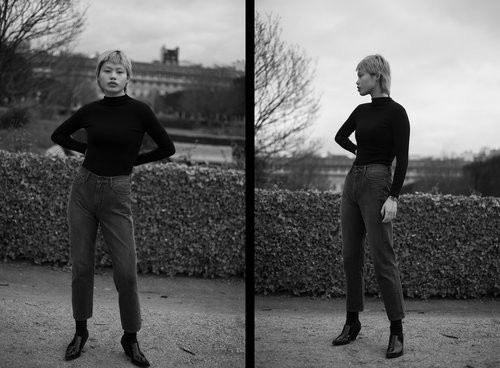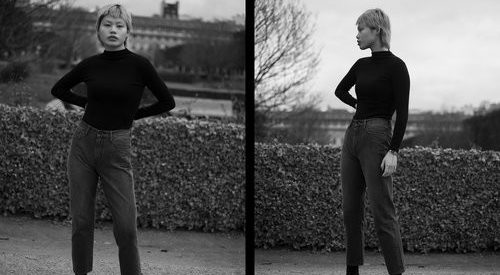
As your professional photography career grows and progresses, there comes a time where many image makers will consider seeking the representation of a photography agency.
Before you start sending your portfolio to every agent in town, it?s best to understand how photography agencies work, the process of becoming represented and which type of agency best fits your photographic eye and style.
What is a Photography Agency?
A photography agency is a company that focuses on managing all aspects of their creative talents? careers. Working with a photography agency can help you to land new work, build more established industry contacts and negotiate financial deals and projects.
In most situations, photography agencies are reserved for creative professionals who have been working in the industry for several years. In contrast to modeling agencies where beginning models are a main part of building talent, photographers represented by an agency have a set portfolio and are actively working with clients.
How To Be Represented By a Photography Agency
The process of beginning to work with a photography agency is unique for every photographer. Photography agents are well connected in the industry. This means that they are aware of up-and-coming photographers and who is shooting for major publications and commercial brands. In many cases, a photography agent may already know a photographer?s work before they have been properly acquainted.
If you are working and shooting large scale projects, you can be confident that agencies will start to approach and contact you about your current talent representation. In other situations, you may personally begin to reach out to agents who may already be familiar with your work. This kind of introduction is usually available to photographers who have shot large editorial covers, been commissioned by major brands and obtained media coverage with the industry?s top publications.
Now, even though the vast majority of photography agents represent seasoned professionals, there are still smaller agencies that take on all levels of talent. If you are at a midpoint in your career and feeling that a photography agent could help you connect more with available work opportunities, you can find agencies that fit for you. Some agencies will take on completely new talent, while others will take on talent that has shot several interesting projects but have yet to reach the point of a front page spread.
In the case of seeking a photography agent in unison with building your career, you will need to take the steps to reach out and connect. The times have certainly changed in which you used to share your work. Working photographers who bring in physical prints to agents to show them their professional book. Now, with the access of the internet, more connections are being made through a first online contact.
The best way to approach a photography agent is to begin by doing your research. Before sending any kind of communication, make sure you have taken a thorough look at the agency?s current work and roster. There are a few key points you will need to cross reference such as:
- Does the agency represent artists within my specific niche? For example, commercial, fashion, lifestyle, still life.
- Do they already have one or several photographers with a style similar to mine?
- Is the aesthetic of these photographers a huge deviation from my visual eye? For example, if they represent very high fashion photographers that use eccentric image techniques while you are more of a natural, film focused photographer, your styles may not be a good match.
- Who are their clients?
- Research their talent, and see their latest work. This is a good indication of whether the agency is strong in booking new projects.
- Are they focused in one city, or do they have an international reach?
Once you have carefully culminated a list of potential agencies that fit your style, you can begin to reach out.
Film Photography Tips For Beginners – SHANNON CIRICILLO
Film photography has made a massive resurgence in the visual industry over the last several years. While it never truly?
www.shannonciricillo.com
How To Contact a Photography Agency
In my personal opinion, I would begin any new professional relationship with a phone call. This means that you call the agency and inquire about who you can speak to about photography representation. You may be given the number of an agent. You may receive an email to use for further contact, or you may be told they are currently not accepting new talent. Whichever the answer may be, you?ll need to prepare for all of these options.
Calling on the phone is a lost method of communicating. Yet, this is why you should utilize it. Everyone contacting a photography agent will send them an email. You know why? Because it is the easiest method and requires the least amount of risk and discomfort.
Instead of following the crowd and being passive in your efforts, take initiative and pick up the phone. If you?re contacting an agent, this means that you are serious and invested in the growth and longevity of your creative career.
An agent will have more respect for you if you choose to personally call them and have an honest conversation about your goals and intentions of being represented.
In this initial conversation, be ready to talk about your personal style, which formats of photography you use, which projects you have worked on and who your current clients are. You will want to be confident in your abilities and qualifications but also personable and easy to talk to.
As a photographer, personality can be a huge factor in you landing a job over another photographer with a less than desirable attitude. People want to work with people they like. So, do everything you can to put your best foot forward.
If you are contacting an agency that is located where you live, offer to stop by the office and show your work in person. If you are reaching out from another city or part of the world, be ready to send your online portfolio to the agent by email.
Before the phone call has ended, you will be able to tell whether the agent is interested in furthering the conversation. No matter the outcome of your chat ? good, bad or indifferent ? always make sure to send a follow up thank you email for the agent?s time. Not only is this good behavior for working with agents but also for your overall, further success in the industry.
Showing Your Portfolio in Person
If your initial phone call went well, you may have set up a time for you to come by the office and show your work in person. As another note to older traditions, here is what I suggest you prepare for your meeting:
- A printed portfolio of your top 10 favorite images. Show diversity in your shots, including portraits, full length, varying poses and locations. All of the images should cohesively fit together to express your personal style and aesthetic. Even though the shoots are different, the mark of a good photographer is the ability to employ their visual eye to any type of photography situation. Your printed images should be on quality paper and placed within a professional book or folder styled portfolio.
- A digital version of your portfolio that can be seen on either a tablet or iPad. This can hold the remainder of your images for the agent to take a look at and scroll through. These images can be a large library of your best shots and can contain multiple variations from the same shoot. With these, you will want to make sure they are uploaded in high quality and easily visible on the screen.
It is important that you bring a mixture of printed and digital images to your portfolio review. Not only does this show professionalism, but it gives the agent an idea of what your images look like in print.
Considering that many photographers shoot editorial work and brand campaigns are often printed on billboards or on physical marketing materials, your work will eventually be printed for publication and circulation.
While showing your portfolio, be prepared to answer any questions about the images, such as what your direction was for a shoot or what the intention was for capturing a specific photograph.
After your meeting has finished, you will want to leave some kind of additional card with your information. Although the agent will have your personal contact and website, a physical business card that has one of your images printed on it serves as a simple reminder.
When everything is accessible online, it is now the physical aspects that we pay more attention to. A card with your work on it is a good way to reinforce the connection you have made with the agent.
The Reality of Being a Freelance Creative – SHANNON CIRICILLO
It’s truly a balancing act, so you better learn how to juggle. I have to admit, I was never really cut out for the?
www.shannonciricillo.com
Be Prepared to Handle Rejection
Although you may have exchanged many messages with a photography agent, there is always the possibility that they will turn you down for representation. This is completely normal.
In some cases, an agent may like your work, but have no room to add you to their talent roster. They may think you are talented, but not quite the best fit for the tone and style of their specific agency. In simple terms, you will have to be okay with the possibility of rejection.
Working as an artist is never an easy career. That is why you shouldn?t expect that finding a photography agent will be a simple task. This may be a process that takes months or years to find the right agency for you.
You may take several meetings and have them never amount to something more concrete. Instead of taking this as a sign to give up your career and flee the photography world forever, keep pushing to create new work. Update your book, work on more projects and continue to grind the way you have for years before.
Take the process we explained above, rinse and repeat. Continue to reach out and build contacts, establish more professional relationships and eventually something will stick. The process of finding a quality photography agent is going to take some dedication and drive.
You want to focus on finding the best possible person to help you build and grow your career. Someone who not only helps you land new jobs, but who also truly understands your vision and process of creating.
Your relationship with your photography agent could very well last for the longevity of your career. Be selective in choosing the right person to help your grow and develop as a photographer.
Originally published by H Influencer at https://thehhub.com.


